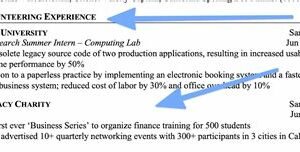Table of Contents
Can you write off mileage for volunteer work? Find out how to deduct your travel expenses when doing charitable work and maximize your tax savings. Learn about the eligibility criteria, documentation requirements, and other essential tips for claiming mileage deductions as a volunteer.
Are you an individual who generously gives their time to volunteer work? If so, you may be wondering if there are any financial benefits associated with your selfless efforts. Well, we have some good news for you! Did you know that you might be able to write off the mileage you accumulate while volunteering? That’s right – by utilizing this potential tax deduction, you can not only make a difference in your community but also save some money in the process. So, let’s dive into the details of how you can maximize your tax benefits and make the most out of your volunteer work.
Introduction
Volunteering is a noble act that many people engage in to give back to their communities and support causes they care about. While the primary motivation for volunteering is often altruistic, it’s natural to wonder if there are any potential tax benefits associated with these activities. One common question that arises is whether you can write off mileage for volunteer work. In this article, we will explore the guidelines and requirements for deducting mileage expenses as a volunteer.
What Is Mileage Deduction?
Mileage deduction refers to the practice of deducting the expenses incurred while using your vehicle for specific purposes, such as business or charitable activities, from your taxable income. This deduction allows you to reduce your overall tax liability by accounting for the costs associated with using your vehicle for these purposes.
General Requirements for Mileage Deduction
In order to claim mileage deduction for any purpose, including volunteer work, there are certain general requirements that need to be met. These include:
- Keeping a detailed record of your mileage, including the date, destination, purpose, starting point, and ending point for each trip.
- Using a standard mileage rate set by the Internal Revenue Service (IRS) to calculate your deduction. For the tax year 2021, the standard mileage rate for charitable purposes is 14 cents per mile.
- Being able to substantiate your mileage expenses with proper documentation, such as receipts or records of expenses related to the vehicle.
Volunteering for Qualified Organizations
In order to be eligible for mileage deduction, your volunteer work must be conducted for qualified organizations. These organizations are typically recognized as tax-exempt under section 501(c)(3) of the Internal Revenue Code. Examples of qualified organizations include charities, religious organizations, educational institutions, and nonprofit hospitals.
Deductible Mileage for Volunteer Work
If you meet the requirements mentioned above and volunteer for a qualified organization, you can write off mileage for your volunteer work. This includes mileage incurred while traveling to and from the volunteer location, as well as any mileage accumulated while performing volunteer tasks or attending related meetings.
Transportation Expenses That Cannot Be Deducted
While mileage for volunteer work is generally deductible, it’s important to note that certain transportation expenses cannot be claimed as deductions. These include:
- Commuting expenses: If you volunteer for an organization near your home or regular workplace, you cannot deduct the mileage as it is considered part of your daily commute.
- Personal detours: If you make personal stops or detours while driving for volunteer work, those miles are not deductible.
- Non-volunteer activities: Any mileage incurred for activities that are not directly related to your volunteer work, such as sightseeing or personal errands, is not deductible.
Calculating Mileage Deduction
To calculate your mileage deduction for volunteer work, multiply the number of miles driven for qualifying volunteer purposes by the standard mileage rate set by the IRS. For example, if you drove 200 miles while volunteering, your deduction would be calculated as follows: 200 miles x $0.14 (standard mileage rate) = $28.
Recordkeeping and Documentation
As with any tax deduction, maintaining proper records and documentation is crucial. To support your mileage deduction for volunteer work, keep a detailed log of your trips, including the date, purpose, and number of miles driven. Additionally, save any receipts or documents related to vehicle expenses, such as gas, maintenance, and repairs.
Alternative Deduction Method
If keeping track of actual mileage seems burdensome, you also have the option to deduct your actual out-of-pocket expenses related to volunteer work. This method requires careful recordkeeping and documentation of all expenses, such as gas, oil changes, and repairs, but may provide a more accurate representation of your costs.
Consulting a Tax Professional
While it’s possible to navigate the rules and requirements for deducting mileage for volunteer work on your own, consulting a tax professional can provide you with expert guidance tailored to your specific situation. They can help you ensure that you meet all the necessary criteria and maximize your eligible deductions.
Conclusion
Volunteering is a selfless act that not only benefits others but can also have potential tax advantages. If you volunteer for a qualified organization, you can write off mileage for your volunteer work, subject to certain requirements and restrictions. By carefully tracking your mileage and maintaining proper documentation, you can potentially reduce your overall tax liability and continue making a positive impact in your community.
Overview of Tax Deductions for Volunteer Work
When it comes to volunteer work, many people are unaware that they may be eligible to claim mileage deductions on their taxes. While you cannot deduct the time you spend volunteering, you can often deduct the miles driven for volunteering purposes. This overview will provide you with essential information to understand the eligibility criteria and rules surrounding mileage deductions for volunteer work.
Meeting the Eligibility Criteria for Mileage Deductions
To qualify for mileage deductions for volunteer work, you must meet certain eligibility criteria. Firstly, you must volunteer for a qualified charitable organization that is officially recognized by the IRS. Additionally, you cannot receive any financial compensation or reimbursement for the miles driven. Understanding these criteria is crucial to determine if you are eligible for mileage deductions.
Calculating Mileage Deductions for Volunteer Work
If you meet the eligibility criteria, you can proceed with calculating your mileage deductions for volunteer work. The standard mileage rate for 2021 is 14 cents per mile, subject to change each year. Keep a detailed log of the dates, purposes, and number of miles driven for your volunteering activities. This log will be essential when calculating your deductions accurately.
Recordkeeping Requirements for Mileage Deductions
It is crucial to maintain accurate and organized records to back up your mileage deduction claims for volunteer work. Your records should include the date, destination, purpose, and number of miles driven for each volunteer activity. Keeping a detailed record not only helps you claim accurate deductions but also provides the necessary documentation to support your claim in case of an audit.
Deducting Other Volunteer-Related Expenses
Apart from mileage deductions, you may also be eligible to deduct other expenses related to your volunteer work. This may include expenses for supplies, uniforms, training courses, or travel expenses beyond just mileage. However, certain limitations and rules apply, so it is essential to familiarize yourself with the IRS guidelines or consult a tax professional for proper guidance.
IRS Reporting Guidelines for Mileage Deductions
When filing your taxes, it is important to report your mileage deductions accurately. Use Form 1040 and Schedule A to report your volunteer-related deductions. If your total deductions, including mileage, exceed the standard deduction, itemizing your deductions may be beneficial. However, ensure you follow the IRS guidelines and provide all necessary documentation.
Obtaining Receipts for Volunteer Expenses
While receipt requirements may vary depending on the type and amount of the expense, it is always a good practice to obtain receipts for any expenses related to your volunteer work. This includes receipts for mileage expenses, as well as any other eligible expenses you may have incurred. Retaining these receipts will help you provide substantiation and support during an audit if required.
Seeking Professional Advice
Navigating the complexities of tax deductions for volunteer work can be challenging. As such, seeking the guidance of a tax professional is highly recommended. A tax professional can provide personalized advice based on your specific situation and ensure that you are maximizing your deductions while remaining in compliance with the IRS regulations.
As a professional, it is important to understand the rules and regulations surrounding tax deductions, especially when it comes to volunteer work. One common question that arises is whether you can write off mileage for volunteer work. Here is a professional point of view on this matter:
1. IRS Regulations:
- The Internal Revenue Service (IRS) allows individuals to deduct certain unreimbursed expenses incurred while performing volunteer services for qualified organizations.
- Mileage is one of the expenses that can potentially be deducted, but there are specific conditions that need to be met.
2. Qualified Organizations:
- In order to be eligible for any tax deduction related to volunteer work, the organization you are volunteering for must be a qualified tax-exempt organization under Section 501(c)(3) of the Internal Revenue Code.
- Volunteering for religious, charitable, educational, scientific, or literary purposes usually falls under this category.
3. Mileage Deduction:
- Mileage driven for volunteer work can potentially be deductible, but it depends on the nature of the volunteer activities and the total amount of mileage driven.
- The IRS allows a standard mileage rate to be used for calculating the deductible amount. For example, in the tax year 2021, the standard mileage rate is 14 cents per mile.
- However, it is important to note that commuting mileage from your home to the volunteer location is not considered deductible.
4. Record-Keeping:
- To claim a deduction for mileage, it is crucial to maintain accurate records of your volunteer activities and the corresponding mileage driven.
- You should keep a log that includes the date, purpose of the volunteer work, the name of the organization, and the number of miles driven.
- Documentation such as receipts, emails, or other written communication from the organization can further support your deduction claim if needed.
5. Consult a Tax Professional:
- While this information provides a general understanding of the topic, it is always advisable to consult a tax professional who can provide personalized advice based on your specific situation.
- A tax professional can help ensure that you are meeting all the requirements and maximizing your deductions while staying compliant with IRS regulations.
In conclusion, while it is possible to write off mileage for volunteer work, there are certain conditions and regulations that need to be met. Understanding the IRS guidelines, maintaining proper records, and seeking professional advice are essential steps to take when considering any tax deductions related to volunteer work.
Thank you for taking the time to visit our blog and learn more about the topic of writing off mileage for volunteer work. We understand that many individuals are passionate about giving back to their communities and want to make the most of any available deductions or tax benefits. While we aim to provide valuable information and insights, it is important to note that we are not professional tax advisors. Therefore, we strongly encourage you to consult with a qualified tax professional or seek advice from the Internal Revenue Service (IRS) for personalized guidance.
Throughout this article, we have discussed various aspects related to deducting mileage expenses for volunteer work. Transitioning from one point to another, we have explored the general requirements set by the IRS and highlighted the importance of maintaining accurate records. Additionally, we have touched upon the potential limitations or restrictions that may apply when it comes to claiming these deductions. However, please bear in mind that tax laws and regulations can change over time, so it is crucial to stay up to date with the latest information provided by the IRS.
In conclusion, while it may be possible to write off mileage for volunteer work under specific circumstances, we emphasize the importance of seeking professional advice. Tax matters can be complex, and the IRS provides resources and publications that can assist you in understanding the regulations and requirements. By consulting with a tax professional, you can ensure that you are taking advantage of any eligible deductions and complying with all applicable laws. Remember, the goal is not only to give back to your community but also to do so in a financially responsible and compliant manner.
Thank you once again for visiting our blog. We hope that the information provided has been insightful and helpful. If you have any further questions or would like to explore other topics related to taxes or volunteering, please feel free to browse our website or reach out to us directly. Your dedication to serving others is commendable, and we wish you all the best in your volunteer endeavors.
.
Here are some common questions that people also ask about writing off mileage for volunteer work:
Can you write off mileage for volunteer work on your taxes?
What are the requirements for deducting mileage for volunteer work?
- You must volunteer for a qualified organization recognized by the IRS.
- The volunteer work must be for charitable purposes and not for personal gain.
- You should keep a detailed record of the mileage driven for volunteer activities.
- The mileage must be directly related to the volunteer services provided.
- You cannot deduct mileage if you were reimbursed for it or if you received any form of compensation.
How do I calculate the mileage for my volunteer work?
Can I deduct mileage for attending meetings or trainings related to my volunteer work?
What documentation do I need to support my mileage deduction for volunteer work?
Yes, you can potentially write off mileage for volunteer work on your taxes. However, there are certain criteria that need to be met in order to claim this deduction.
In order to deduct mileage for volunteer work, you must meet the following requirements:
To calculate the mileage for your volunteer work, you should keep a logbook or use a mileage tracking app to record the date, purpose, starting location, destination, and total miles driven for each volunteer activity. The IRS allows you to use the standard mileage rate (set annually) to calculate the deductible amount.
Yes, you can deduct mileage for attending meetings or trainings directly related to your volunteer work. As long as the purpose of the meeting or training is connected to your volunteer services for a qualified organization, you can include the mileage driven in your deduction.
To support your mileage deduction for volunteer work, it is important to keep accurate records. This includes maintaining a mileage logbook or using a mileage tracking app, keeping receipts or other documentation of expenses related to your volunteer activities, and obtaining written acknowledgments from the charitable organizations you volunteer for.






